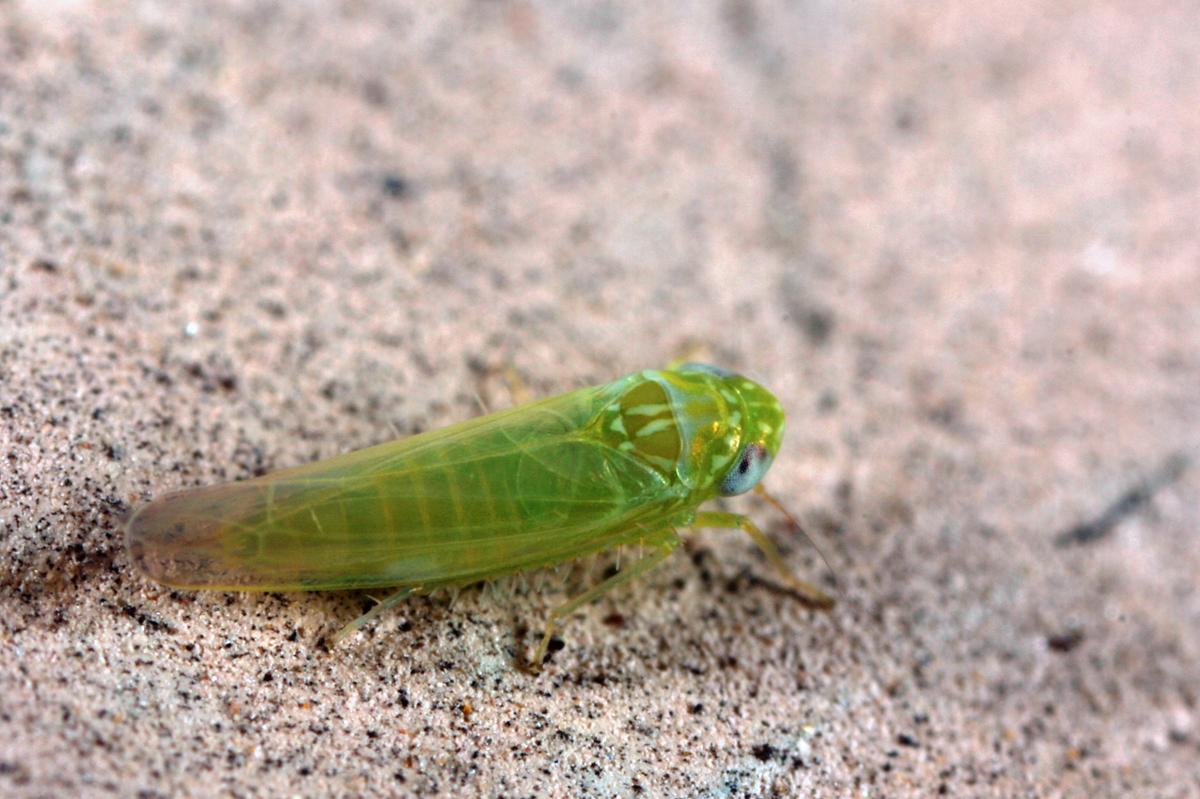D: Do you still grow potatoes in your garden, Yaël?
Y: Every year, Don.
D: I'm worried about potato leafhoppers.
Y: Those lime green bugs about the size of a grain of rice?
D: Those are the ones. They pierce a plant's leaves and stems with their mouthparts and suck out the sap and other liquids. Their saliva also contains a toxin that causes plant parts to dry, curl and rot. It's called "hopperburn." They also damage other plants in the Eastern U.S., and cause millions of dollars in damage every year.
Y: I haven't had any problems with them.
D: Well, you might soon. Entomologists at the University of Maryland and Queens College in New York examined six decades of records. They found that potato leafhoppers, which are migratory pests, arrive in the fields an average of ten days earlier now than they did in the early 1950s. Not only that, their infestation was most severe during the warmest years.
Y: You're telling me leafhoppers like it hot?
D: Yes. The researchers suggested that farmers need to prepare for the effects of climate change on migratory pests. Leafhoppers not only like alfalfa, which is an important feed for livestock, they also like hop plants, which are used in beer.
Y: Beer. Now you're getting serious, Don.
D: Unless global warming is stopped, leafhoppers are only one of many migratory pest species that are likely to change their migration and feeding habits. Rising temperatures are going to make it harder to manage these pests and lead to higher crop losses.
Y: And fewer hops for the beer, Don. Now, I'm worried.










